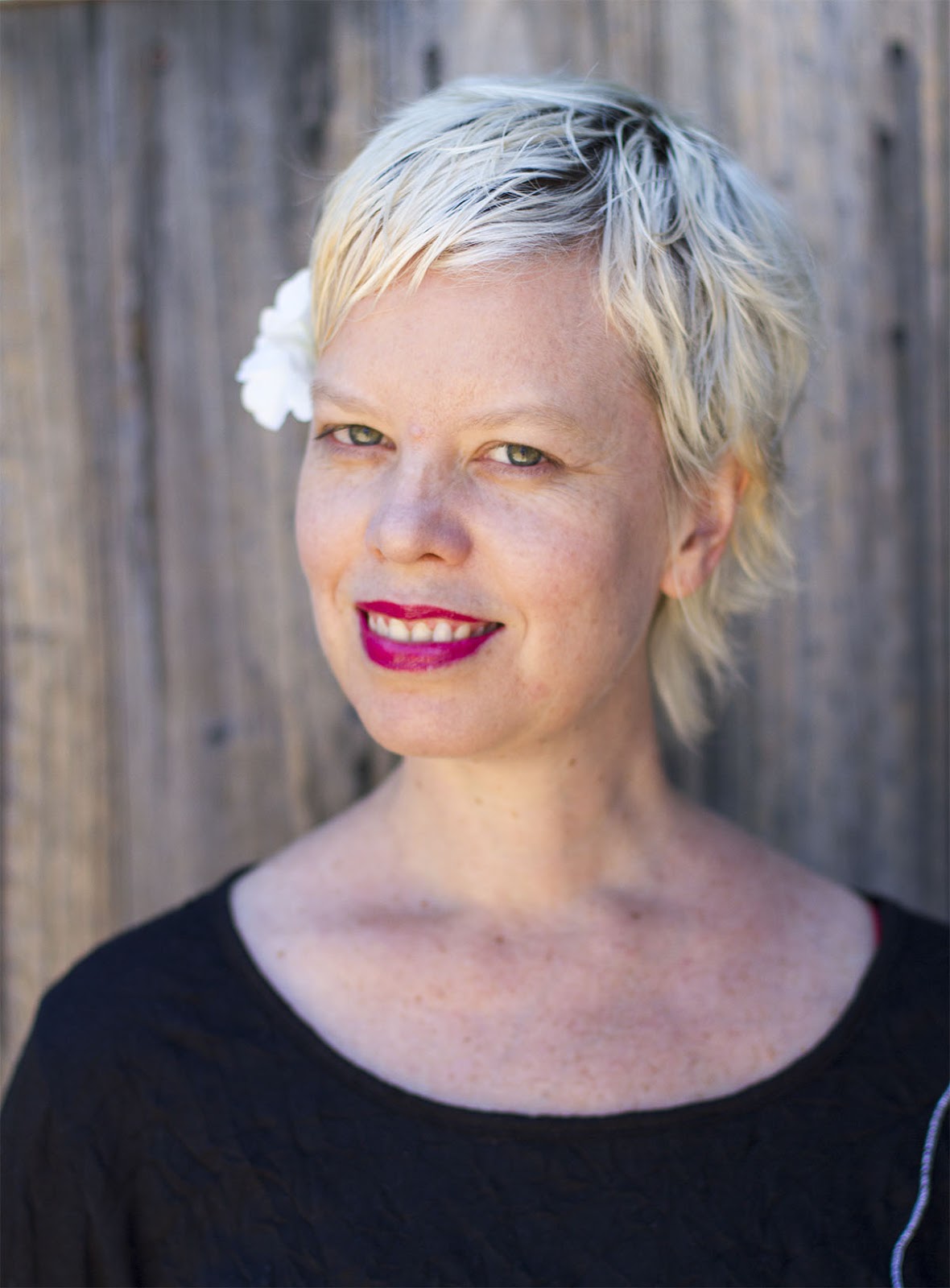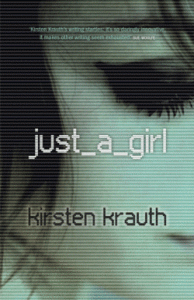
Whether you self-publish or have a book coming out through a traditional publisher, there’s no getting around the fact that you need to let people know it exists in order for them to read it.
Lately I’ve received numerous queries from disappointed writers who have self-published only to discover that despite having built it, so to speak, few readers have come to admire their work, let alone make a purchase.
On the traditional side of things, book publishers have finite resources for marketing their new titles, so even having a book deal is not enough to guarantee you the sort of attention your book presumably deserves.
I don’t know too many authors who write books and hope that nobody hears about them or reads them.
So what do you need to do? Promote your work. Yes, you. Even you, up the back there, hiding under your manuscript.
Yikes. If the word promotion doesn’t strike ambivalence into your writerly heart, then you must be a self-help guru who has arrived on the wrong website.
Fear not! Practical solutions galore below …
My client Kirsten Krauth (below) has written up an excellent guide for the novice writer-promoter that she’s kindly allowed me to reproduce here. Kirsten is the author of the widely and fabulously well reviewed debut novel just_a_girl (UWA Press 2013), and of the monthly online Friday Night Fictions event for debut fiction writers. This article was originally delivered as a talk at the NSW Writers’ Centre and which also appeared on the Obsession With Books blog for Young Adult fiction.

My first novel, just_a_girl, was released in June 2013 by UWA Publishing. It took about seven years to write, on and off. It took about five years to find a publisher, on and off. For most of that time I was consumed with the end goal in mind. What was the end goal? To get a book published. To see my words wrapped up in a cover. To hold this precious object in my hand, put it on the pile next to my bed.
Many writers have made the link between launching a book into the world and having a baby. I heard a quote which said that releasing your novel into the world is like watching your baby crawl across an eight-lane freeway.
If you’ve had a baby, you’ll know that, try as you might, you can’t really think beyond labour. You have nine months to prepare, but still, you can’t imagine what it’s going to be like. There’s always the fear — of labour, of the unknown — that gets in the way. But once you go through the birth, you realise, you need to reinvent yourself, that actually the labour is just the starting point, and you have a whole new set of things to learn and challenges to adapt to.
When you prepare for your book to be published, it seems to work much the same way. The focus is on structural edits, getting the words right, negotiating the cover, but your brain seems to stop at the launch point. Really, you think, my work here is done. Let others take it from my hands, review it, read it.
But it doesn’t seem to work like that. Finding readers is not as easy as you might imagine. Even if you have a big-name publisher behind you, I’ve heard a number of writers say that in the current climate, the publisher may not have the resources or the motivation to push your book. The worst possibility of all is releasing your book to … resounding SILENCE. And this does happen.
I expected that, in the months leading up to my book’s release, the publisher was doing a lot of work behind the scenes (and they were), that the newspapers and bloggers would receive their review copies really early and be hard at work, that after the book launch, I’d be immediately sitting there fielding reviews and interviews in the first month. But that didn’t happen for me. My local bookstore took three weeks to get the stock in, due to a distributor problem. I sat there waiting and wondering. I waited a month before reviews started to happen. I waited two months before a large article in a major newspaper.
I moved to Castlemaine a few years back. It’s a goldmining town in rural Victoria. I see the process of releasing your book as something like panning for gold. In this case, the gold isn’t fame and fortune. I never really expected that. The gold is your readers and bloggers who like the book and pass it on. If you write fiction that’s contemporary and crosses genres (mine is an adult novel but branches into YA themes), it takes a slow build and word of mouth. But it seems, there’s a lot of sifting required to find out who these people are. Marketing isn’t easy. If you have a low budget, there’s no option but to be creative.
I think my creative spirit remains galvanised if I keep coming up with ideas for just_a_girl. So here are some tips on how to begin the sifting process…

I started my blog, Wild Colonial Girl, just before I got a contract with UWA Publishing, but it would have been great to do it a lot earlier. I didn’t set it up as an author website to promote the book. I started it as a website to catch my thoughts and fears and joys about moving from Sydney to Castlemaine: the tree change experience. I began writing on anything I felt passionate about: film, writing, other books, learning to be a mother. I interviewed other writers who were mothers, like Anna Funder and Kirsten Tranter, to get some insight into how they managed it all. Gradually, and it wasn’t overnight, I began to get a following. Over time, I got readers who would comment regularly. It was an exciting experience to get that instant feedback from people, to carry on a conversation about ideas. I still get a thrill every time I hit the ‘publish’ button.
Of course, the blog has now become an avenue through which I promote the book. But I do that somewhat reluctantly. I try to use an angle that I feel comfortable with. For example, I have always had a fear of public speaking. Yes. But I used the blog to talk about that, to explore how when you become a published writer, the focus shifts and you suddenly find yourself called on as a speaker too, to track the personal challenges in that journey. My character, 14 year old Layla, has a fear of public speaking too so I could bounce off the similarities between us.
Start following other people’s blogs. If people comment on yours, go and comment on theirs. Many book bloggers are passionate. They will help promote your work. It doesn’t matter if they are friends. Ask people you know to write about the book, do interviews. Take up every opportunity if a blogger offers to feature you on their blog. My publisher told me that the longer your book gets mentioned on blogs, the more ammunition the book sales team has to keep it positioned well in book stores. That’s something I didn’t realise. Keep the momentum going any way you can.
Promote your blog on Facebook
Work between the various social media to promote your blog. I set up a page on Facebook called Wild Colonial Girl. My twitter name is @wldcolonialgirl. I wanted to create a persona that people would remember. It linked in well with the idea of just_a_girl too. A girl pushing the boundaries, so to speak. For my Wild Colonial Girl page, I decided to have an experiment with Facebook advertising. I took a little ad out to ‘Like’ my FB page to see what would happen. Thirty bucks was my outlay. The number of likes for my page went from 30 to over 1,000 very quickly.
Now, let’s be cautious here. Many of my likes were obviously from people who never visited the page, let alone the blog. I became very popular with men from the Middle East who obviously liked the twin concepts of Wild and Girl but didn’t read any of the often feminist material on the site. But, I added the FB widget to my site, and damn it, the little pics of 1,000 followers looked quite good in my sidebar.
Use Goodreads as much as you can
The sifting process is made much easier if you already know where in the creek to find little nuggets. Goodreads is a wonderful marketplace because the audience there are already readers. Many people — who can even begin to understand them? — don’t like reading or don’t read at all. On Goodreads, in general, people are passionate about books. It’s truly a refining process here. Begin before your book is out. Make lots of friends. Talk about books with other people. Review books. Follow reviewers you like. Make sure your blog is on Goodreads. This is easy – as Goodreads will automatically pull your blog posts into it.
Join author groups of people you love. For example, I love the Japanese writer Murakami. I joined a discussion group about him. My book is heavily influenced by him, to the point where the Japanese character Tadashi is seen reading one of his books, The Wind-Up Bird Chronicle, on the train. I mentioned this in the discussion group. I got a lot of feedback saying people were interested in checking just_a_girl out.
When your book is out, set up an author page on Goodreads and do a competition and giveaway for your book. I did this and my book went from having about 20 people wanting to read it, to about 600. Again, whether this has translated into people actually buying it, is not clear. But your book is being noticed. And the perception is that people want to read it.
Make your book launch a bit different
I’ve been to hundreds of book launches over the years. They are usually exactly the same. Cheap wine and bad nibblies are set up on a table. Someone gets up to introduce the book, the author does a reading, everyone lines up to get the book signed (you hope). Why not challenge this set up a bit. Make your launch memorable. Fit it to the content of your book. Get some dynamic people to launch it. If you have a friend with a camera, make sure you video the launches. Emily Maguire launched my book in Sydney and her speech was sensational – it’s up on YouTube now.
For my Castlemaine launch, we had a ball. I got a local punk band to sing No Doubt’s just_a_girl, a song the book revolves around, plus a few covers of Pink and other grrls with attitude. The kids in the crowd started off a moshpit.
If you can’t find a reader community, build your own
Many of the most successful writers working in social media have a loyal community wrapped around them. I’m thinking of Allison Tait and Walter Mason in particular. After my book was out a few months, I came across a writer posting on Facebook saying that she felt absolutely despondent now her book was out, and did anyone else feel this way. She got an avalanche of sympathy and tales from writers, mostly debut authors. Of course, they were meant to be blogging about how exciting it was to have a book published, and felt guilty about their negative feelings, but they were comfortable venting in this other space. They had released their books to the loud silence I warned you about earlier.
So I had one of those ‘wake up at 5am working on a solution’ moments. What if I set up a monthly club on my blog where the aim was to promote the work of debut writers and short story writers working in fiction, people who were essentially in the same boat as me? What if I opened it up to include all genres and those who were self-published or working only in ebooks?
But if I was going to do this, I needed to set up some groundrules. My conditions were: the writers involved needed to subscribe to my blog, they needed to promise to promote the blog when their book was featured via social media, and they needed to start commenting on each others’ work and hopefully review it in some way. Of course, I would list my debut novel — so in a roundabout way, setting up this community would be a means of promoting my blog and my writing too. It worked a treat. I got some new followers, some people passionate about helping others, and I enjoyed seeing what new writing was out there. I also got the feelgood factor. The word people kept emailing me with was ‘hope’ – it gave writers a sense of hope that people would be reading their work…
So if there are any debut novelists or short story writers out there, it’s called Friday Night Fictions and comes out the last Friday night of the month. Contact me and I’ll add your work.
Keep on fossicking…
Unlike paperbacks, ebooks can have a long and lingering life online. I think most publishers tend to overlook them or ignore the possibilities completely. My next plan is to see how I can zero in and find an audience for the ebook of just_a_girl. I don’t feel like I’ve quite found the nuggety bits there yet.
A number of people have asked me whether I want to continue on with the book’s characters in the future or leave them behind. I decided to set up a page for Layla on Pinterest, to see how she could shape herself off the page. At the moment it’s mainly quotes from the book, but I’d like to extend this into a new narrative based around the visual rather than text, from Layla’s perspective. People have started sharing the pins, mainly the sexy ones at the moment. It’s one of those things that needs time. I’ll find it one day.
I also want to have a video campaign of some sort. My husband works in film production. We both find most book trailers pretty cringeworthy. I want to film something that really works on its own as visually engaging, while also being linked to the book.
I have a writers’ group in Castlemaine. When we talk about social media, I admit, sometimes we roll our eyes and get this fatigued look on our faces. Because all of it, the guest blogs, the comments on other people’s writing, the email interviews, takes time and dedication, time taken away from the next writing project. And some people aren’t interested in being entrepreneurs, they just want to be writers, for the creative buck to stop there. I understand that, but I don’t want to sit in silence and wait for readers who never show up.
I’d suggest making a plan. When your first book comes out, leave two to three months free of other commitments, if you can. Open yourself up to new possibilities. Dedicate time to thinking up new ways to promote your work. Think of it as a new creative space. Use your local communities, both online and on home soil. The more you sift, the more you’ll find.
